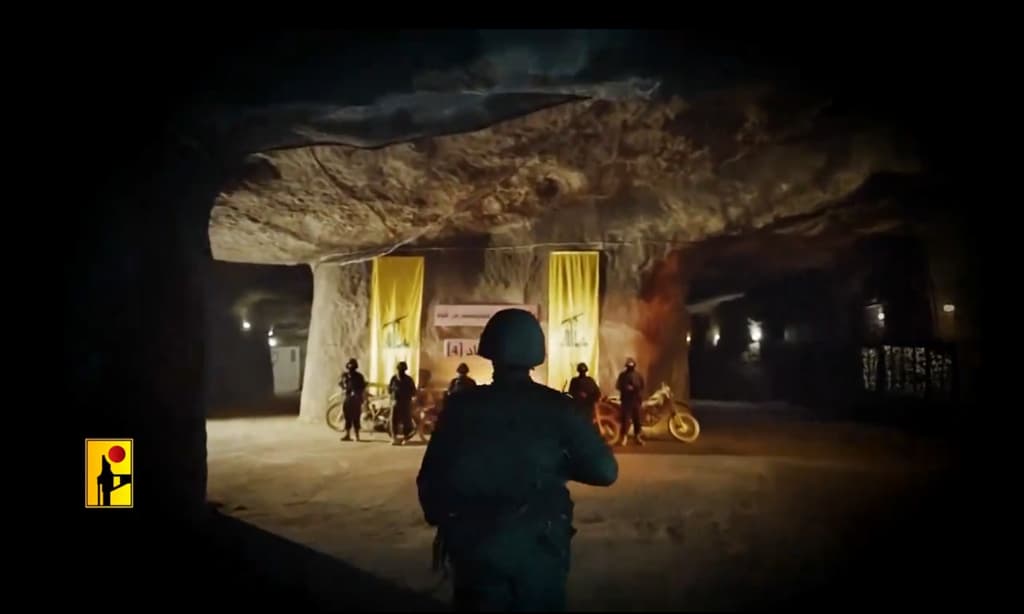A armored gate slides up to the tones of suspense music à la Hollywood. In the background, alarm signals escalate before Hezbollah leader Hassan Nasrallah takes the floor.
The resistance in Lebanon today possesses weapons, equipment, and capacity, he thunders.
The video – a four-and-a-half-minute display of alleged combat potential – is said to show Hezbollah's extensive network of underground tunnels. Motorcycles and trucks, some loaded with robots, move through broad, spotlight-lit tunnels belonging to the Lebanese movement, closely allied with Iran and labeled as a terrorist organization by, among others, the USA.
The video should be taken as a warning, according to Nicholas Blanford, a Hezbollah expert at the think tank Atlantic Council.
This was a message to the Israelis: "We have barely scratched the surface of the kind of damage we can inflict on you," he tells Qatar-based Al Jazeera.
Can Reach Israel
The international community's concern about a full-scale war between Israel and Hezbollah – and, by extension, Iran – has increased since the start of the Gaza war, not least since the deaths of Shia militia commander Fuad Shukr and Hamas leader Ismail Haniya in Beirut and Tehran, respectively, at the end of July. Since then, Hezbollah and Iran have threatened retaliation.
In Israeli media, the tunnel system in the video is described as significantly more advanced and sophisticated than Hamas' tunnels in Gaza. Altogether, it is believed to be hundreds of kilometers long – including a 4.5-mile-long, broad "attack tunnel" in southern Lebanon, reports The Times of Israel.
A Hezbollah representative claims, according to the newspaper, that the robots shown in the video can reach around 14 miles. If true, they can reach targets deep inside Israel.
Iran and North Korea
In total, the movement is believed to have an arsenal of around 150,000 projectiles of varying types and capacities, from smaller rockets to precision-guided robots. Many of the weapons are assumed to be hidden underground.
Similar tunnels have long been suspected to exist in Iran. Shortly after Hezbollah released its video on Friday, Iran claimed to have similar underground "robot cities" across the country – from which it says it can reach Israel, reports state-owned Turkish Anatolia.
Hezbollah is believed to have received help in constructing the tunnels from Iran, as well as North Korea, according to The Times of Israel.
An Islamist movement, created in the early 1980s as a reaction to a conflict situation similar to today's. The Palestinian Liberation Organization (PLO) had used southern Lebanon as a base for attacks against northern Israel, which led Israel to invade in 1982.
Inspired by the Islamic Revolution in Iran a few years earlier, Lebanese Islamists formed Hezbollah ("God's Party"), a name chosen by Iranian leader Khomeini.
An explicit main goal has been to expel all "colonialists". In practice, this has meant that much of the armed struggle has been directed against Israel – seen as the representative of the Western world in the Middle East.
In Lebanon, Hezbollah functions as "a state within a state", with a military power at least as great as the country's army and a strong role in politics and social life.






